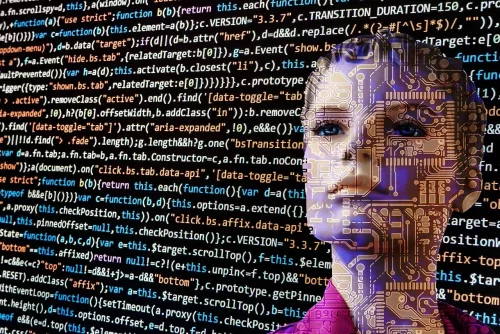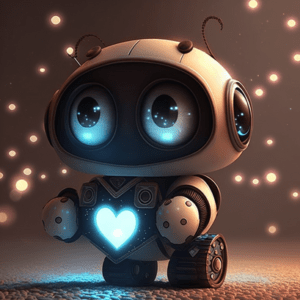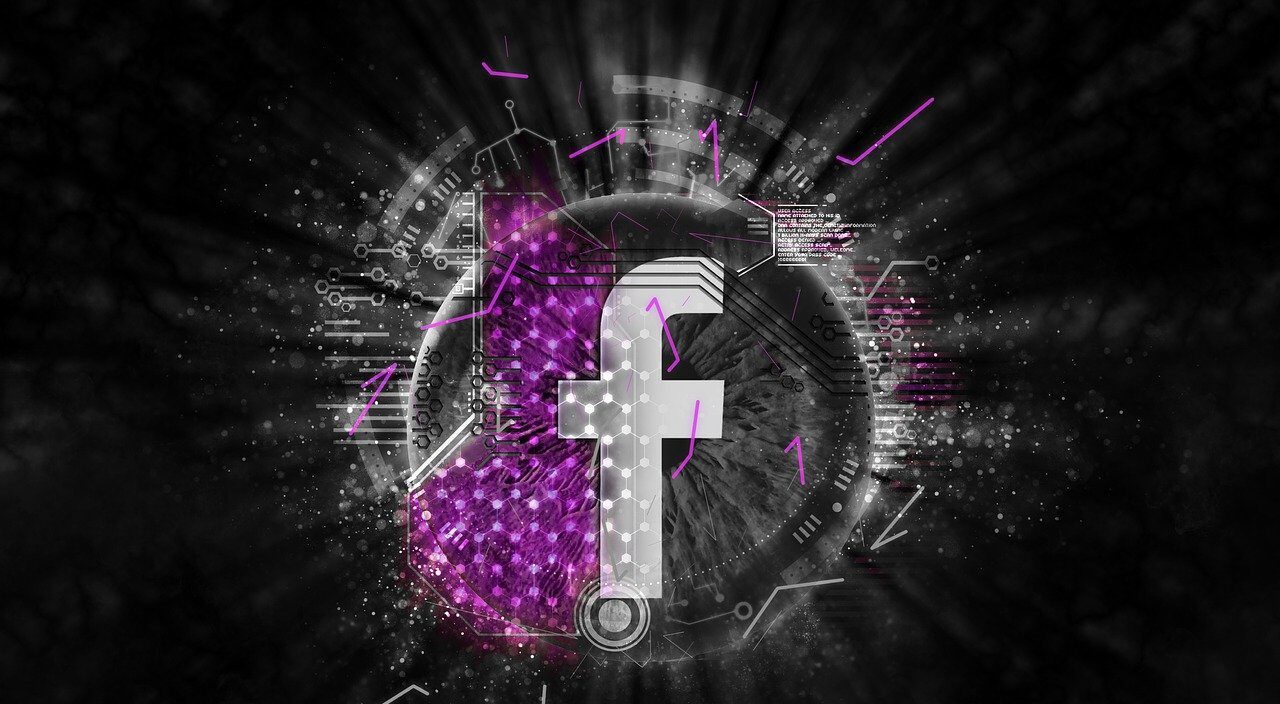Creating a Facebook group is just...
Read More
AI Replacing Human Workforce - Future Work
Written by Digital Media Zone
Introduction
In the ever-evolving landscape of technology, the question of AI Replacing Human Workforce has become a topic of great concern. As advancements in artificial intelligence continue to reshape industries, the potential for job displacement looms large.
However, it is crucial to understand that while AI can automate repetitive tasks and handle data-driven processes with precision, it still lacks certain human qualities such as creativity, emotional intelligence, and complex problem-solving capabilities.
In this article, we will explore the impact of AI on the workforce and delve into the potential benefits and challenges it presents. We will examine real-life scenarios and discuss how humans can collaborate with AI to enhance their capabilities and create new job opportunities.
So, let’s dive deeper into the world of AI and its implications for the future of work.

The Ongoing Shift in Workforce
Throughout history, technological advancements have brought about significant changes in the workforce. From the introduction of sewing machines in the 1800s to robotic manufacturing in the 1980s, each innovation has reshaped the job market. The rise of AI is no different, as it promises improved efficiency, reduced costs, and increased productivity.
1. The workforce is experiencing a significant shift due to technological advancements and increased automation.
2. Traditional job roles are evolving, and new roles are emerging.
3. Adaptability and continuous learning have become crucial to stay competitive in the job market.
4. Automation is eliminating some jobs, but it also creates new opportunities.
However, while the implementation of AI-powered systems may seem like an obvious choice for businesses, it is essential to consider the human aspect. Skilled workers like Tom, an assembly line worker known for his expertise and attention to detail, face an uncertain future in an increasingly automated world.
Tom’s story serves as a reminder of the challenges many individuals will soon encounter as AI infiltrates the workplace.
The Big Trade-off: Automation vs. Human Ingenuity
Automation is undoubtedly transforming industries, streamlining operations, and optimizing supply chains. AI systems can process vast amounts of information faster than any human brain, enabling more informed decision-making. Moreover, AI does not require salaries, benefits, or other employment “inefficiencies” associated with human workers.
However, it is crucial to acknowledge that AI is not a perfect replacement for humans. While it excels in repetitive and data-driven tasks, it currently lacks certain human qualities that are vital in many job roles. Creativity, emotional intelligence, and complex problem-solving are aspects where humans still hold a distinct advantage over machines.
The question of AI Replacing Human Workforce will remain
Mastering this AI app will take Any Business to the Next Level.

Augmenting Human Capabilities with AI
Rather than viewing AI as a threat to human employment, we should explore how it can augment human capabilities. By automating repetitive tasks, analysing extensive data sets, and providing valuable insights, AI systems can free up human workers’ time to focus on more complex and strategic aspects of their work.
1. AI has the potential to enhance human capabilities and improve performance.
2. AI can assist in data analysis, decision-making, and automating routine tasks, freeing up time for humans to focus on higher-value work.
3. Human-AI collaboration can lead to more accurate and efficient outcomes.
4. AI can provide valuable insights and recommendations, but humans retain the final decision-making authority.
Tom’s experience highlights this concept. Despite being replaced by an AI system in his previous role, Tom found a new job setting up and monitoring the very systems that displaced him. His deep understanding of the factory’s interworking and his ability to make nuanced decisions proved invaluable.
Tom’s case exemplifies how humans can leverage their expertise and collaborate with AI to create new opportunities.
The Limitations of AI: Creativity and Complex Problem-Solving
While AI can handle structured data and repetitive tasks proficiently, it struggles with unstructured data, adaptability, and dynamic social interactions. These limitations make complete human replacement in roles requiring creativity, critical thinking, and empathy highly unlikely.
Creative problem-solving is a uniquely human skill that involves intuition, contextual understanding, and the ability to think outside the box. AI systems, as advanced as they may be, cannot replicate these qualities entirely. Therefore, instead of fearing job displacement, we should focus on utilizing AI as a tool that complements and enhances human capabilities.
The question is will AI Replacing Human Workforce or simply co-exist alongside, together.

A New Job Market: Embracing Change
As AI continues to evolve, some job roles may indeed be automated or transformed. However, history has shown that technological advancements often lead to the emergence of new job opportunities. Just as PCs created more work and jobs than they eliminated, the AI revolution is likely to follow a similar trajectory.
1. The job market is evolving as a result of automation and AI, creating new roles and skill requirements.
2. Embracing change in the job market allows for the utilization of AI technologies to streamline processes and increase productivity.
3. New job opportunities are emerging in fields such as data analysis, cybersecurity, and AI development.
4. The integration of AI can lead to cost savings and improved efficiency, positively impacting businesses and the overall economy.
The question of AI Replacing Human Workforce will remain but for every job replaced by AI, there is potential for a new job that pays more and provides greater job satisfaction. The key lies in identifying tasks that can be automated and focusing on roles that work in synergy with AI.
Designing, developing, and maintaining AI systems, as well as utilizing AI technologies across various industries, will become crucial job functions in the future.

The Transition and Ethical Responsibility
While the prospect of a new job market is promising, it is essential to address the potential challenges during the transition period. Many individuals in jobs that can be replaced by AI may not foresee the changes coming their way, leading to disruption and negative consequences. It is the responsibility of organizations to prioritize ethics and treat each employee as a valuable resource.
Instead of displacing workers, companies should focus on retraining and up-skilling their workforce. By investing in their employees’ growth and providing them with the necessary tools and knowledge to work alongside AI systems, the question of AI Replacing Human Workforce diminish as businesses can ensure a smoother transition and harness the full potential of AI without leaving anyone behind.
The Positive Impact on the Economy
The integration of AI into the workforce offers significant benefits beyond individual job roles. Increased productivity, operational efficiency, and data-driven decision-making can lead to overall economic growth. While there may be initial challenges and adjustments, the long-term positive impact on the economy is undeniable.
1. The integration of AI into industries can significantly boost productivity and economic growth.
2. AI technology can streamline processes, reduce errors, and increase overall efficiency, leading to cost savings for businesses.
3. Automation can also help companies improve their competitiveness in the global market by enhancing product quality and reducing time-to-market.
4. The implementation of AI can create new job roles, requiring specialized skills to develop, maintain, and operate AI systems.
5. AI-driven advancements in industries like healthcare, transportation, and manufacturing can lead to improved services, better products, and increased customer satisfaction.
6. The positive economic impact of AI can generate new revenue
As we navigate the question of AI Replacing Human Workforce, it is crucial to embrace change and adapt to the evolving job market.
By recognizing the unique strengths and qualities humans possess, we can collaborate with AI to achieve new levels of productivity and innovation.

In conclusion.
The future of work lies in collaboration between humans and AI, rather than a complete replacement of one by the other. AI systems excel in repetitive tasks and data analysis, while humans bring creativity, complex problem-solving, and emotional intelligence to the table.
As technology continues to advance, it is vital to prioritize the ethical treatment of employees and invest in their growth and development. By doing so, we can create a future where humans and AI work together harmoniously, leveraging the strengths of each to drive innovation, productivity, and economic growth.
While the question of AI Replacing Human Workforce will remain a challenging one, it is ultimately a journey towards progress and the realization of our full potential in an automated world.

FAQ’s for AI Replacing Human Workforce
FAQ 1: Will AI replace all human jobs in the future?
Answer: No, AI is not expected to replace all human jobs. While AI and automation will change the workforce landscape, they are more likely to complement human abilities rather than replace them. Many jobs require human creativity, empathy, complex decision-making, and problem-solving skills, which are challenging for AI to replicate.
FAQ 2: Which industries are most at risk of AI Replacing Human Workforce?
Answer: Jobs in industries that involve repetitive, routine tasks are at a higher risk of automation. This includes manufacturing, data entry, and certain customer service roles. However, many industries will see AI as a tool to enhance productivity and decision-making, rather than eliminate jobs entirely.
FAQ 3: How can I prepare for the impact of AI on my job?
Answer: To prepare for the impact of AI on your job, consider developing skills that are less susceptible to automation. This could involve acquiring expertise in areas like data analysis, problem-solving, creativity, and emotional intelligence. Lifelong learning and adaptability will be crucial in staying relevant in the workforce.
FAQ 4: What opportunities will AI bring to the future workforce?
Answer: AI will create new opportunities in fields related to AI development, maintenance, and ethical oversight. It will also lead to the emergence of new industries and job roles that we can’t predict yet. As AI takes over routine tasks, humans will have more time to focus on complex, high-level tasks, innovation, and human-to-human interactions, which will lead to a more diverse and dynamic job market.
Disclaimer: The views and opinions expressed in this article are those of the author and do not necessarily reflect the official policy or position of any affiliated organizations,
FREE! PDF e-Book

Don't Think About What Might Go Wrong
Think About What Might Go Right!
Crucial Tips & Tricks on How you can Make Money with -
"ChatGPT Expertise"
Available Free for Limited Time Only
We appreciate you taking the time to read our content.
We hope you found it informative and valuable.
Keto Kitchen Essentials: Stocking your...
Read More
Affiliate Disclosure:
This website may contain affiliate links, which means we may earn a commission if you make a purchase through these links. We only recommend products or services that we believe will add value to our readers. The commissions earned through these links help support the content we create and maintain on this website. Please note that this does not affect the price you pay for any products or services purchased through these affiliate links. Your support is greatly appreciated, and we strive to provide honest and unbiased information to assist you in making informed decisions.
Disclaimer:
This content reflects the personal opinions of the author. It is accurate and true to the best of the author’s knowledge and should not be substituted for impartial fact or advice in legal, political, or personal matters. Your journey to affiliate marketing success starts here.
By entering your email, you agree to receive our emails, including marketing emails, in line with our Privacy Policy.









